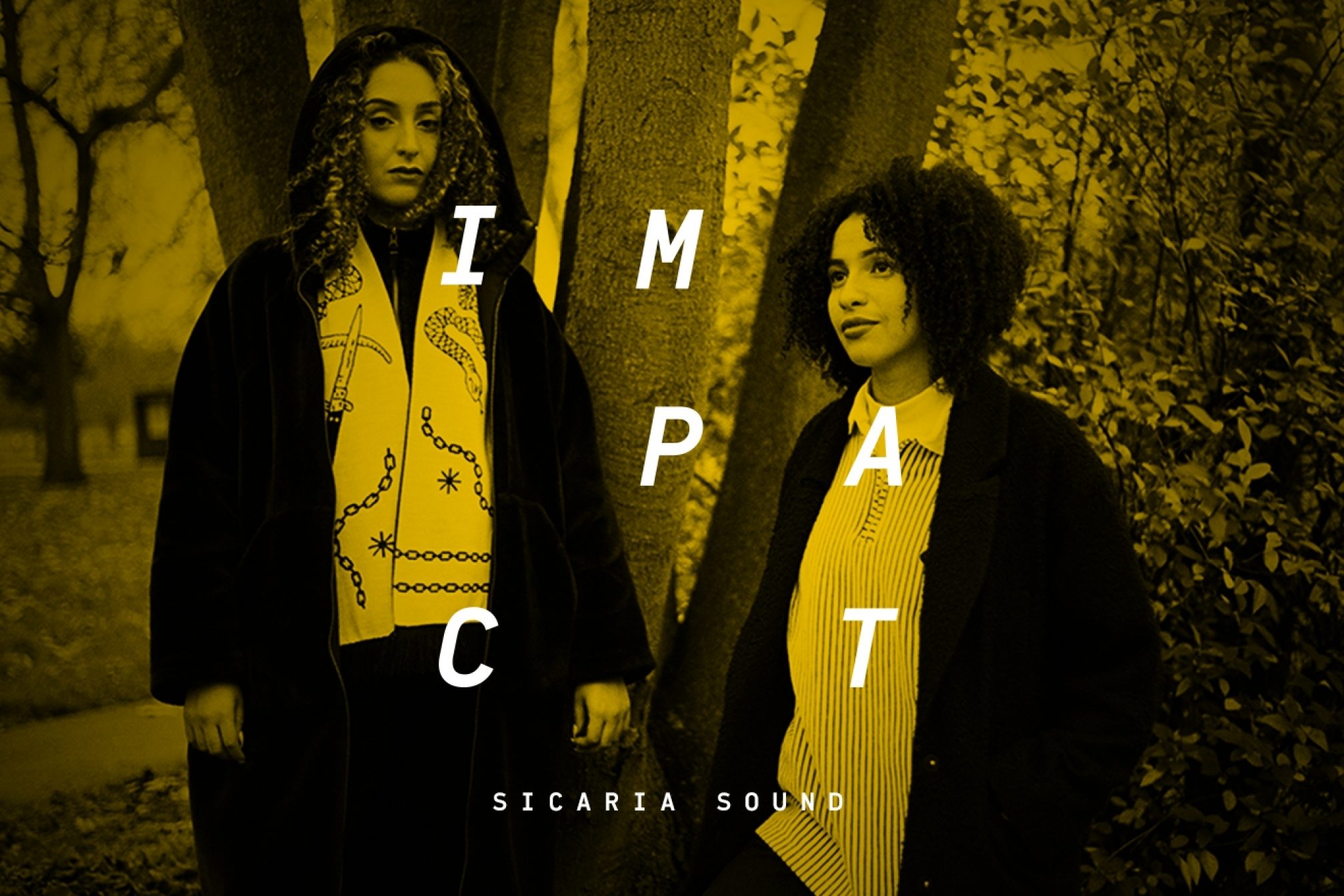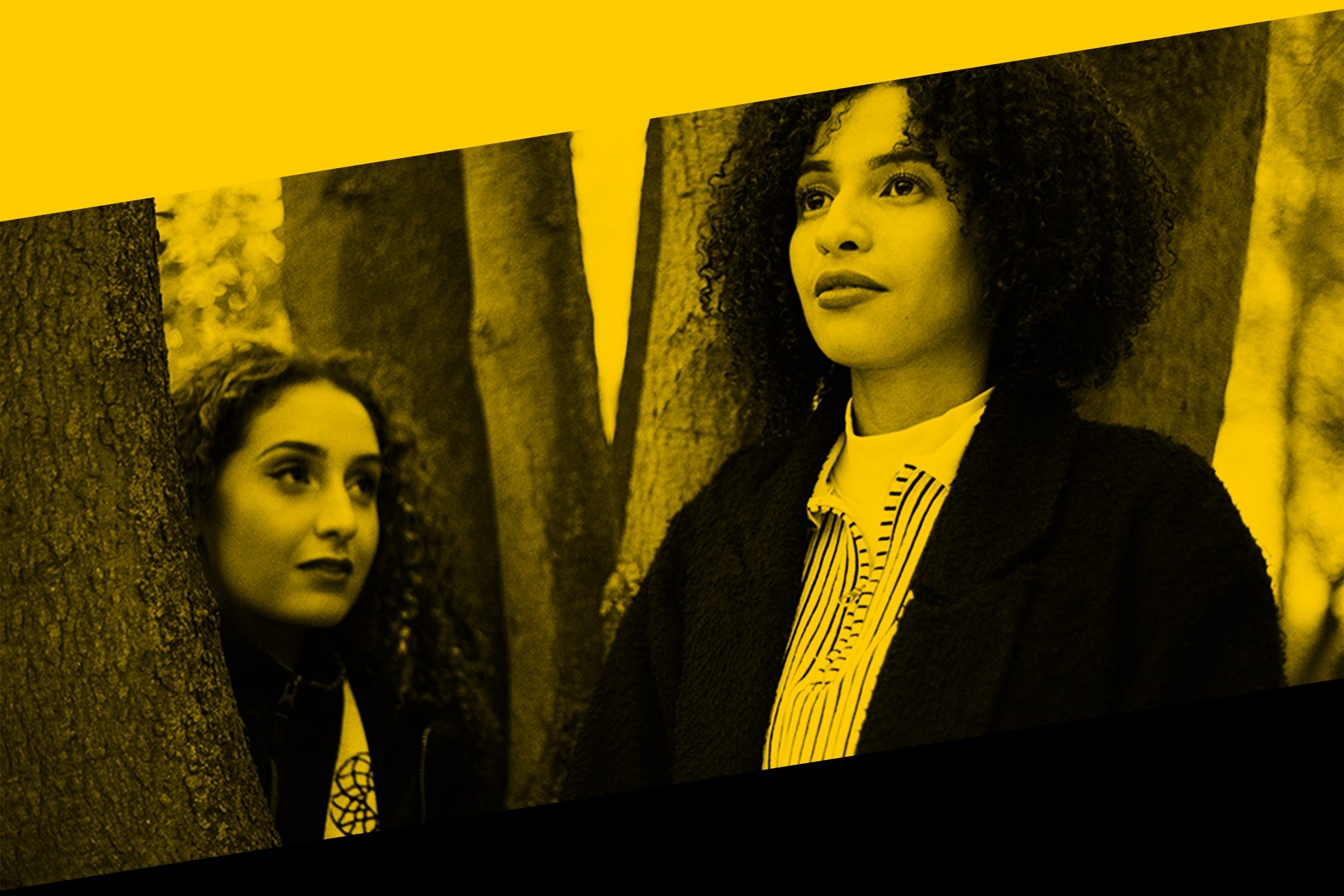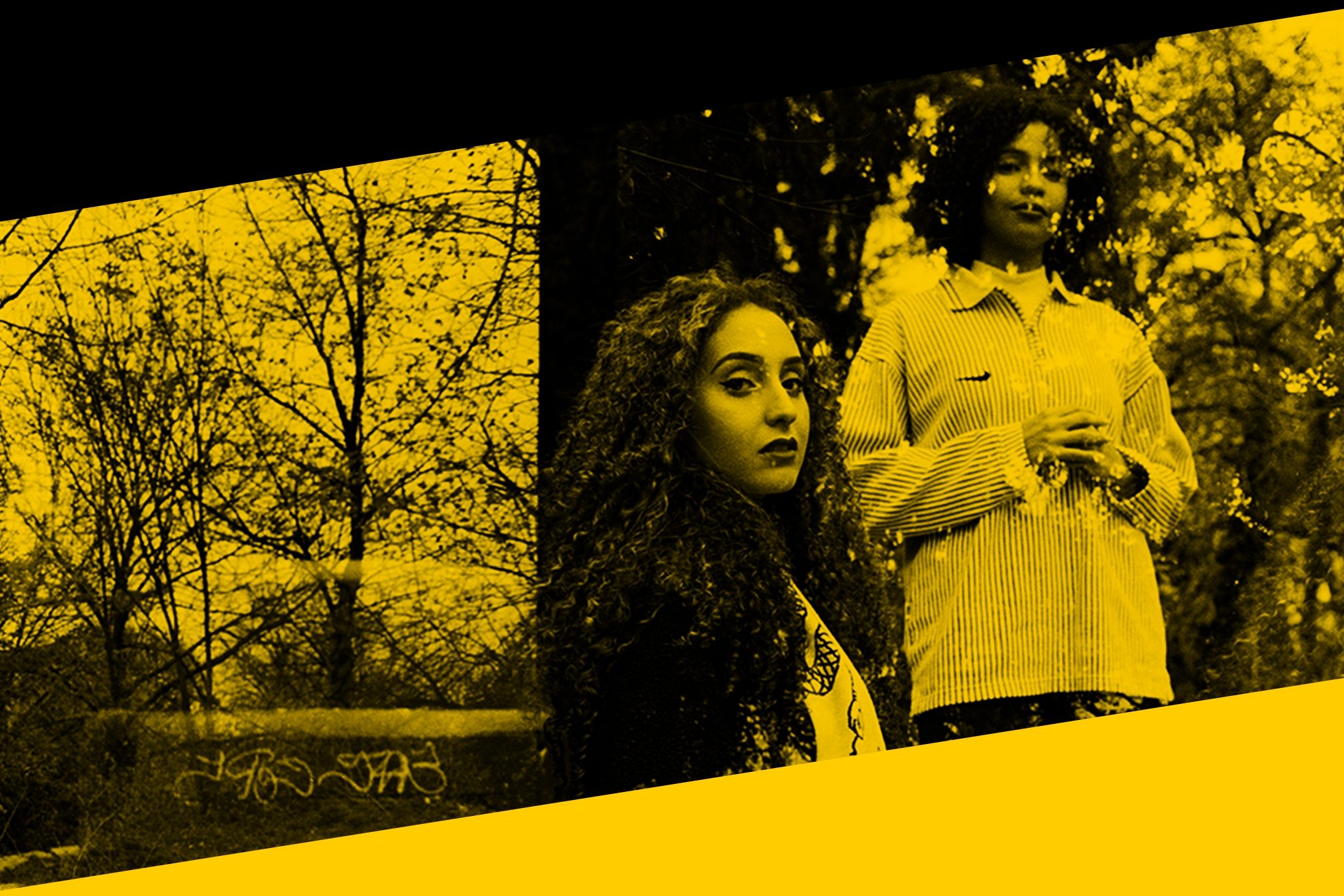 Impact
Impact
Mixing with purpose: Sicaria Sound are taking dubstep into the future
Sicaria Sound come armed with only the newest and heaviest 140bpm pressure
London duo Sicaria Sound are on a mission.
The pair are keen to explore the possibilities of futuristic bass music while nodding to the essence of classic cuts past. Merging dark, old-skool-inspired dubstep with frenetic grime, experimental bass and other flourishing hybrid sounds circling around the 140 BPM realm, their DJ sets have earned them spots on Fabric bills, Deep Medi line-ups (sidenote: they’re the label’s resident DJs), Outlook Festival outings and more.
Rooted in London and with South Sudanese and Moroccan heritage respectively, Sicaria Sound, aka Sancha Ndeko and Imbratura Lou, discovered their musical alignment while at university. Merging individual interests in grime, dancehall and soundsystem culture to form their so-called Sicaria ‘Sound’, over the past four years the pair have gone on to DJ across the UK and Europe together.
Alongside their busy touring schedule, Sicaria Sound have made their mark on the airwaves, with backstage roles, guest mixes, shows and residencies on stations such as BBC 1 and 1xtra, NTS and most recently, Rinse FM. Their broadcasts champion the brightest new producers while giving hearty props to the genre’s most notable veterans and their pioneering productions.
Now, the duo are turning in an hour of tough and textured bass-heavy power as they share their Impact mix with us. Featuring new material from producers from the UK via Greece, LA, New Zealand and beyond, their mix skips from light to dark to menacingly cold with ease, showcasing a selection of fresh cuts from a slew of global underground names.

How did you meet?
Ndeko: In brief we met at university. We both had a love for bass music and it was one of the things we unintentionally bonded over when we first met.
Imbratura: We also both had a distaste for our course and what we were studying so we were trying to find any means to escape our actual academic life, and that route was through bass music.
Did Sicaria Sound start then, or did you put a name to what you were doing later?
Ndeko: It technically came later, but it started from the get-go because we always went to nights, we were always talking about nights and talking about aspects of music that we enjoyed. I feel like for Sicaria to properly have a name on it, that was actually after years of thinking about music, playing music together and then us finally doing it for real.
Imbratura: It was just us doing our thing. Then one day we sat down and said, ‘We’re doing it, so we might as well do it officially’. We never had a vision for it from the beginning, we just wanted to do it. I remember a mutual friend of ours sat us down and was said, ‘You could really be on stuff you know,’ so we thought, ‘Let’s just try’.
Did growing up in London influence your early musical interests?
Imbratura: I grew up in North West. I never used to really travel into the city when I was really young but when I hit maybe 15 or 16 everyone was going out and I’d only really venture into central to go on nights out. I remember going to Ministry Of Sound nights from an early age and they were known, especially back then, for being a place that had that sick soundsystem for experiencing electronic music. It would hit you in the chest and it was like, ‘Wow, that’s really something’.
Were there any early club nights or any standout releases that really turned your heads towards dubstep and bass?
Ndeko: I actually have a different story because although I have family roots in South London, I didn’t grow up here. I was born in Sheffield and then I lived in Ghana and Nigeria before I moved back to UK, and I only started living London when I started university. For a long time I lived in a part of England where the bass music scene was relatively small and clubs supporting bassier sounds kept getting shut down. In terms of releases it is quite a cliché one in dubstep, but I have to be completely honest and say ‘Fabriclive 37’ from Caspa & Rusko. I remember being a teenager and it completely blowing my mind.
Without making this a ‘women in dance music’ piece, did you face any issues or criticism at the beginning of Sicaria Sound for being women in a very male-dominated scene?
Imbratura: In the beginning we did have a few issues. Something we used to cite were feminist theories of women entering a stereotypical ‘man’s sphere’, not only does it challenge the competitive relations that men experience within the scene, but by introducing females into that space it means they’re now seeing females as heightening their competition.
Also, we started coming up in a time were women in the scene were heavily spotlighted in order to address the gender imbalance within music, and so I feel like at the beginning we got a lot of backlash for almost getting to where we are a bit too quick. People were almost willing to surpass the talent and just focus on the fact that we’re two chicks in the game. It was as if people were thinking, ‘Of course you’ll do well, you’re in a moment of interest’ but we always say, ‘they come for all the wrong reasons, but stay for all the right’.

You guys draw for a lot of hard classics as well as tunes from newer producers, what’s your selection process like?
Ndeko: Actually, we only play new music but we do try to find new music that can have that old, classic sound in new and often unconventional ways, so it’s cool you picked up on that as that’s really one of the things we hope to show people. We put in a lot of effort to make sure that we’re not only going through what comes in our inbox, but that we’re also actively looking for new producers and reaching out to people as we want to try and be as representative as possible.
Do you think you’ll venture into production anytime soon?
Ndeko: It’s quite interesting for us because after university and after having done everything together we got the same job in radio production, so that was already one aspect of music we shared outside of DJing. Individually, we’ve both been getting in to making our own tunes for a while. We’re just quite careful because we’re so obsessed by quality of sound, we would never put out anything if we weren’t 1000 per cent happy with it.
We chat about it a lot though and we do think that to be a selector is an amazing and celebrated thing – just look at Mary Anne Hobbs and the seminal effect she’s had as a DJ. We’d be more than happy to just be DJs as we love supporting other people’s music and it’s incredibly important to us to make sure their different sounds and styles are represented, but because we are interested in so many aspects of sound it is just a natural step.
Imbratura: We’re also establishing a new label this year called Cutcross Recordings. We can’t say too much but we’ve got some releases lined-up and yeah, it’s exciting.
Talk us through your Impact mix
Imbratura: Whenever we’re curating mixes a phrase we always keep in mind is, ‘mixing with purpose’ as we don’t want to just put something out that has no reason behind it. We always try to put a motive or a theme to a mix. For this mix, it’s about representing the community that’s underrepresented globally. It’s all fresh exclusives from producers from all over the world.
Ndeko: It was so special listening back to the mix and knowing it’s from people around the world and we managed to make it work in a way we were really happy with. As much as we are really excited about making music and what we hope to achieve with our productions, nothing beats the beauty of hearing people from all corners of the globe in one mix and all their sounds just working together.
Jasmine Kent-Smith is Mixmag's Weekend Editor and Bass & Club Music Editor. Follow her on Twitter
NO TL SOZ HUN <3



